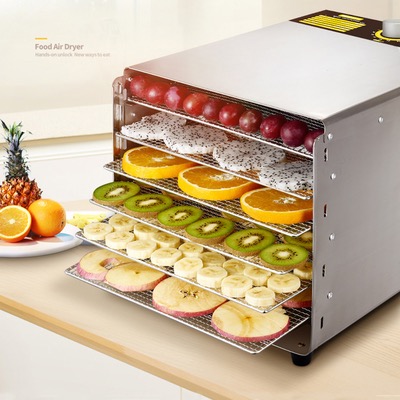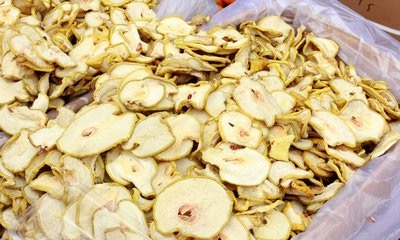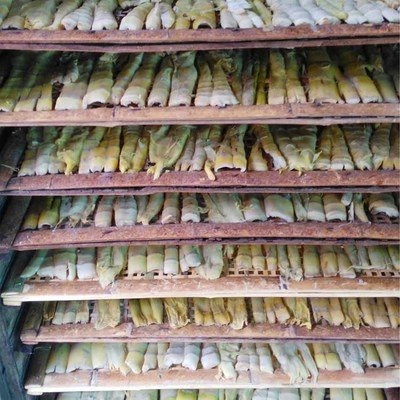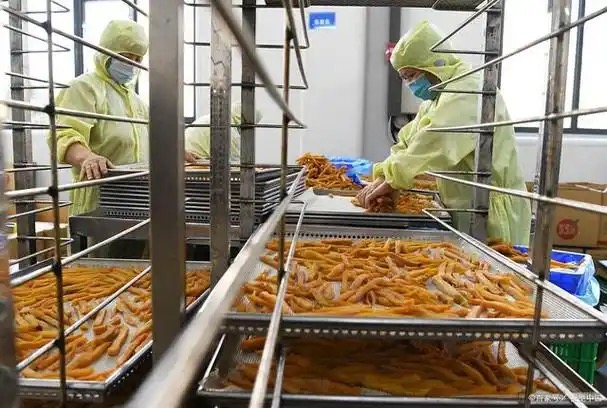
Content Menu
● Introduction
● Understanding Food Drying
● Heat Pump Dryers: An Overview
● The Food Drying Process
● Applications of Heat Pump Dryers in Food Industry
● Energy Efficiency and Sustainability
● Conclusion
● Frequently Asked Questions
>> 1. What are the main advantages of heat pump dryers for food drying?
>> 2. How does the drying process affect the nutritional value of food?
>> 3. Can heat pump dryers be used for all types of food?
>> 4. What is the difference between heat pump drying and freeze drying?
>> 5. Are heat pump dryers more expensive than traditional dryers?
Introduction
Food drying is a crucial method of food preservation that has been practiced for thousands of years. It involves removing moisture from food to inhibit the growth of bacteria, yeasts, and molds, thereby extending the shelf life of various products. In recent years, heat pump dryers have emerged as a revolutionary technology in the food industry, offering efficient and sustainable solutions for drying food products. This article explores the significance of heat pump dryers in food drying, their operational mechanisms, and their advantages over traditional drying methods.

Understanding Food Drying
Food drying is defined as the process of removing moisture from food items to prevent spoilage. Historically, this method dates back to ancient civilizations, where sun drying was a common practice. Today, various techniques are employed, including air drying, freeze drying, and the use of electric dehydrators. Each method has its unique benefits, such as preserving flavor, color, and nutritional value.
The primary benefits of drying food include:
1. Extended Shelf Life: Dried foods can last for months or even years without refrigeration.
2. Reduced Weight: Removing moisture significantly decreases the weight of food, making it easier to store and transport.
3. Enhanced Flavor: Drying concentrates the flavors of fruits and vegetables, making them more palatable.
Heat Pump Dryers: An Overview
Heat pump dryers represent a modern approach to food drying. Unlike traditional vented dryers that expel hot air, heat pump dryers recycle air within the system. They operate by extracting moisture from the food while maintaining a controlled temperature, which is crucial for preserving the quality of the product.
The advantages of heat pump dryers include:
1. Energy Efficiency: Heat pump dryers consume significantly less energy compared to vented dryers, making them a cost-effective option for food processing.
2. Gentle Drying: The lower temperatures used in heat pump drying help retain the nutritional value and flavor of the food.
3. Versatility: These dryers can be used for a wide range of food products, from fruits and vegetables to meats and herbs.

The Food Drying Process
The food drying process involves several critical steps:
1. Preparation: Foods are washed, peeled, and cut into uniform sizes to ensure even drying.
2. Loading: Prepared foods are placed in trays within the dryer.
3. Drying: The heat pump dryer circulates warm air around the food, gradually removing moisture. This process is monitored to maintain optimal temperature and humidity levels.
4. Cooling: Once dried, foods are allowed to cool before packaging to prevent condensation.
Factors affecting drying efficiency include:
1. Temperature: Higher temperatures can speed up drying but may also degrade food quality.
2. Humidity: Low humidity levels are essential for effective drying.
3. Airflow: Proper airflow ensures even drying and prevents the growth of mold.
Applications of Heat Pump Dryers in Food Industry
Heat pump dryers are increasingly being adopted in commercial food drying operations. They are particularly effective for drying fruits, vegetables, and herbs, where maintaining flavor and nutritional content is paramount. For example, companies specializing in dried fruits have reported improved product quality and reduced energy costs after switching to heat pump technology.
Case studies highlight the versatility of heat pump dryers:
1. Dried Fruits: Heat pump dryers can effectively dry apples, apricots, and berries while preserving their vibrant colors and flavors.
2. Vegetables: Carrots, peas, and bell peppers can be dried without losing their nutritional value, making them ideal for soups and stews.
3. Herbs: Delicate herbs like basil and thyme retain their essential oils and aromas when dried using heat pump technology.
Energy Efficiency and Sustainability
One of the most significant advantages of heat pump dryers is their energy efficiency. They typically use about 50% less energy than traditional vented dryers, leading to substantial cost savings for food processors. Additionally, the environmental impact is reduced, as lower energy consumption translates to fewer greenhouse gas emissions.
As the food industry moves towards more sustainable practices, heat pump dryers are becoming a preferred choice. They not only help in reducing operational costs but also align with the growing consumer demand for environmentally friendly products.
Conclusion
Heat pump dryers are revolutionizing the food drying process, offering a sustainable and efficient alternative to traditional methods. Their ability to preserve the quality and nutritional value of food while significantly reducing energy consumption makes them an invaluable asset in the food industry. As technology continues to advance, the adoption of heat pump dryers is likely to increase, paving the way for more innovative food preservation techniques.

Frequently Asked Questions
1. What are the main advantages of heat pump dryers for food drying?
Heat pump dryers are energy-efficient, reduce drying time, and preserve food quality better than traditional methods.
2. How does the drying process affect the nutritional value of food?
While some nutrients may be lost during drying, the overall impact is minimal compared to other preservation methods.
3. Can heat pump dryers be used for all types of food?
Yes, heat pump dryers are versatile and can effectively dry fruits, vegetables, meats, and herbs.
4. What is the difference between heat pump drying and freeze drying?
Heat pump drying uses lower temperatures and recycles air, while freeze drying involves freezing the food and then removing moisture under vacuum conditions.
5. Are heat pump dryers more expensive than traditional dryers?
Yes, the initial investment for heat pump dryers is higher, but they offer significant savings in energy costs over time.












